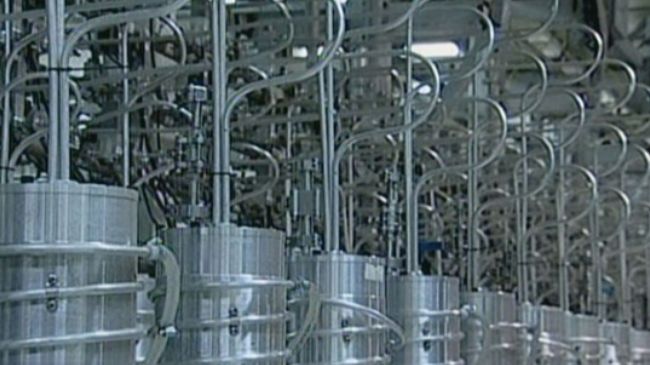The Atomic Energy Organization of Iran (AEOI) has rejected claims by a US think tank that the Islamic Republic has violated the terms of the November 2013 interim nuclear agreement.
The Washington-based Institute for Science and International Security (ISIS) recently alleged, based on an analysis of a recent report by the International Atomic Energy Agency (IAEA) about Iran, that the Islamic Republic “may have violated (the interim deal) by starting to feed (natural uranium gas) into one of its advanced centrifuges, namely the IR-5 centrifuge.”
“Under the interim deal, this centrifuge should not have been fed with (gas) as reported in this safeguards report,” the ISIS stated.
On Sunday, Behrouz Kamalvandi, the AEOI spokesman, rejected the allegation, saying that injection of natural uranium gas into an IR-5 centrifuge at a research facility is within the framework of the interim deal between Iran and the five permanent members of the UN Security Council – France, Britain, the United States, Russia and China – plus Germany.
“By doing so (injection), Iran has breached neither the Safeguards Agreement nor the Joint Plan of Action reached in Geneva last year.”
Kamalvandi also stated that Iran has made “no pledge to halt its research and development activities.”
The ISIS claim comes as the Arms Control Association, a Washington-based research and advocacy group, has also rejected the allegation.
“The latest IAEA report says clearly that no enriched uranium is being withdrawn from the machine,” the association has said.
Iran says it produces low-enriched uranium to make fuel for nuclear power plants.
As one of the first countries to join the nuclear Non-Proliferation Treaty (NPT), Iran signed its Safeguards Agreement with the IAEA in 1973. The accord came into force in 1974. Safeguards are activities by which the IAEA seeks to verify that a state is not diverting nuclear material or equipment to produce nuclear weapons.
None of the reports released by the IAEA have said that Iran’s nuclear program is geared toward non-civilian purposes.
